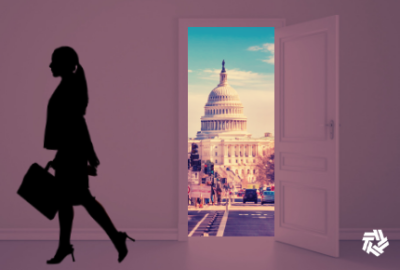

In a recent survey of Federal News Network readers, the vast majority of federal employees said changes in administration have little to do with their retirement...
Some like to speculate that changes in administration might trigger a wave in federal retirements.
Maybe after all the election results are counted, federal employees of retirement age throw up their hands and say, “That guy is our next president?! That’s it, I’m leaving!”
Maybe high-level executives or program managers see the end of one presidency and the start of another as a natural break to wrap up projects before embarking on new priorities from the new people coming in?
It’s a convenient speculation, but from what feds tell us, retirement decisions are more complex internal calculations.
Sure, presidents more often than not control your pay raises (or freezes). They bring in political appointees, who you may or may not interact with. They propose budgets and new priorities, which Congress sometimes chooses to implement. Maybe those policies cause more stress or anxiety.
Sometimes they play a role in shutting down the government, but it’s usually more complicated than that.
Let’s look at some data.
Nearly 94,000 federal employees retired in 2016; almost 96,000 retired the following year. That’s relatively low compared to the sequestration years or even more recently, when federal retirements topped out at 107,000 and 101,000 in 2018 and 2019, respectively.
What about 2020?
Around 92,000 feds retired this last year. Again, a pretty low number, comparatively speaking.
Do changes in administration influence federal employees and their retirement decisions?
The question almost seems silly to ask. Most federal employees join government because it’s a job, and many want to serve the public, not any one president.
Still, we asked the question in our recent survey on federal retirement.
About 72% of the roughly 800 federal employees we surveyed said the change in administration didn’t influence their thinking about retirement. For the remaining 28%, it did, at least to some extent.
“I would have considered staying had the administration not changed,” one person said. “The last four years were the best in my career.”
Others associate Joe Biden with the eight years they experienced during the Obama administration, where pay freezes, sequestration and furloughs left a kind of unpleasant taste in the mouth. Some are fearful it might return.
“I am concerned about a $1.9 trillion [COVID-19 relief] package,” one employee said. “Who’s going to pay for that? I have a feeling it will be a very lean time for federal employees with pay freezes, hiring freezes and budget cuts. Someone has to pay for this.”
Others had very strong feelings about the previous administration, which they said did impact their satisfaction with work.
“I worked directly for the Trump appointees,” one employee said. “It was demeaning and a complete nightmare. If there had not been a pandemic, I would have left because of the misery in the workplace. Now, I have survived them. The work environment is better. I can see how the new administration will be proceeding and [will] make my decisions at a more even pace.”
Others mentioned specific policies from the previous administration as pain points, including President Donald Trump’s Schedule F executive order, which, if implemented, would have reclassified some career feds into a new class of quasi-political appointees.
“If Trump won I would’ve considered retirement as soon as I hit retirement eligibility,” one employee said. “I deeply feared getting Schedule F’ed. That fear is gone, at least for the next four years or until a law is passed banning such nonsense.”
Data seems to indicate that thinking is the exception, not necessarily the rule.
And while federal employees may grumble internally about any one president’s policies or Tweets, they’re generally not the primary factor driving major life decisions, like retirement.
“This is my eighth administration,” one employee said. “Politics has nothing to do with my job performance.”
To the extent that a particular administration does have an impact on their happiness at work, it’s often not the only concern.
I return to the words of this wise reader, who, when commenting on whether the change in administration influenced his or her thoughts on retirement, had this to say:
“Changes of administrations generally do not affect federal employees as much as some people think,” one person said. “Every administration does stupid stuff.”
Pigeons can tell the difference between impressionist and cubist paintings. In 1995, scientists trained pigeons to distinguish between Picasso and Monet paintings. Once they’d learned the difference, they were able to continue separating the two with paintings they’d never seen. They were even able to sort different artists in with the appropriate style.
Source: Gizmodo
Copyright © 2025 Federal News Network. All rights reserved. This website is not intended for users located within the European Economic Area.
Nicole Ogrysko is a reporter for Federal News Network focusing on the federal workforce and federal pay and benefits.
Follow @nogryskoWFED



